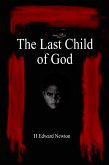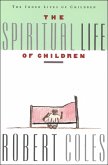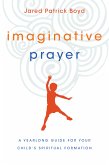Favell Lee Mortimer's 'The Child Who Died and Lived Again' is a classic children's book that follows the story of a young child who encounters death and is miraculously brought back to life. Written in Mortimer's signature didactic style, the book is filled with moral lessons and religious undertones, making it a popular choice for young readers in the 19th century. The narrative is characterized by its moralistic tone and simplistic yet engaging storytelling, drawing readers into a world of faith and redemption. Mortimer's work is a reflection of the religious beliefs and moral values prevalent during her time, providing a window into the societal norms of the era. The Child Who Died and Lived Again serves as a valuable piece of historical children's literature, offering insights into the literary landscape of the 19th century and the influence of religion on storytelling. Readers interested in exploring the intersection of faith, morality, and storytelling in historical literature will find Mortimer's work both enlightening and engaging.
Dieser Download kann aus rechtlichen Gründen nur mit Rechnungsadresse in A, B, BG, CY, CZ, D, DK, EW, E, FIN, F, GR, H, IRL, I, LT, L, LR, M, NL, PL, P, R, S, SLO, SK ausgeliefert werden.









